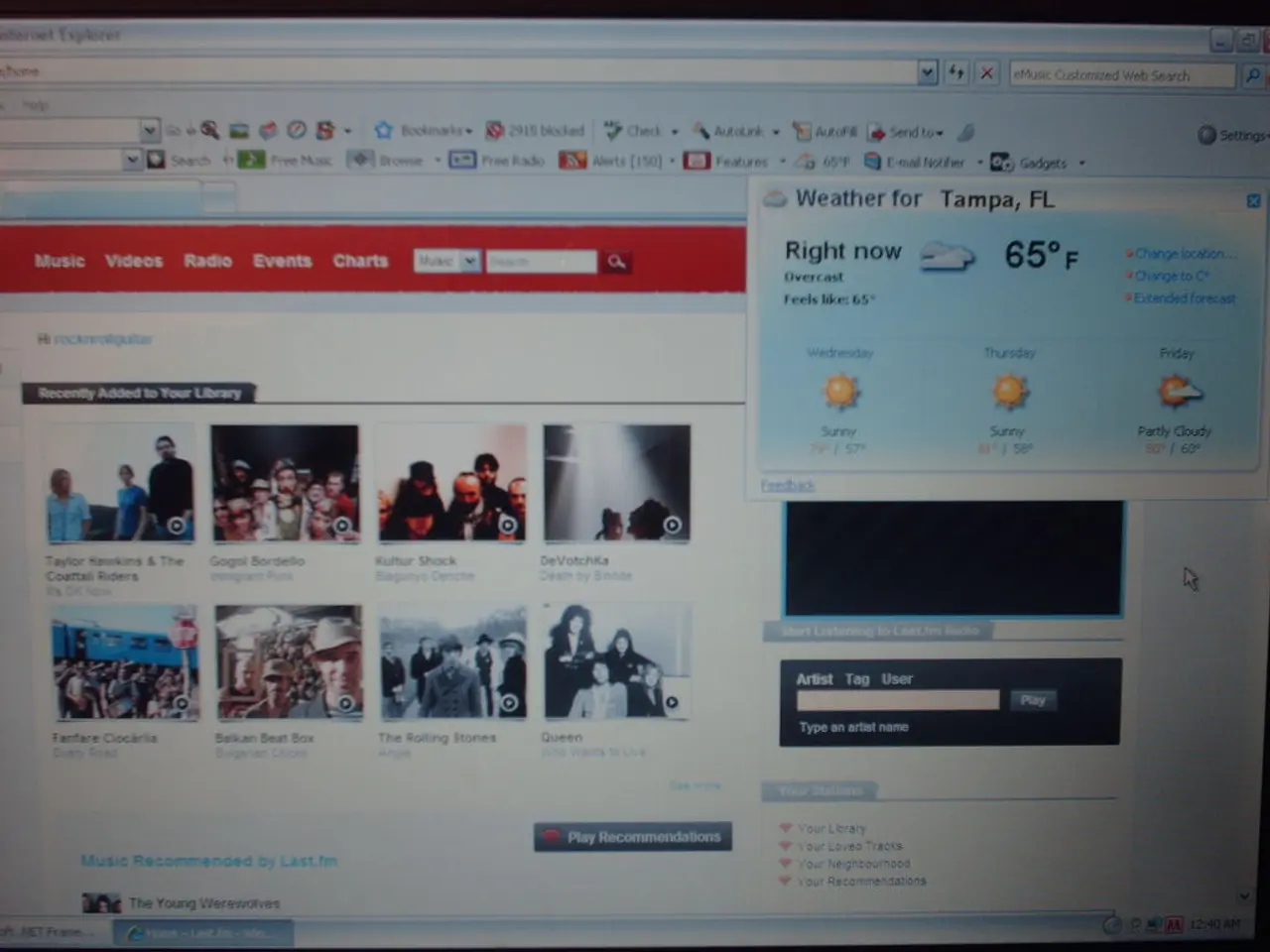Top 15 Outstanding Community Website Building Applications
In today's digital age, building and nurturing online communities is essential for various organisations and individuals. To help you make an informed decision, we've compiled a list of the top 15 community website software options, each tailored to different community types based on recent 2025 evaluations.
Community Platforms for Education and Course Creators
- Mighty Networks Mighty Networks combines content, courses, community, and events with a mobile-first design and branded apps on higher plans. It is ideal for communities focused on high engagement with customizable spaces and multiple content types like memberships and courses [1][4].
- Podia Podia focuses on course creation and simple membership sites with a drag-and-drop website builder. It is best suited for course creators who want integrated sales of digital downloads and memberships but with basic community features and no mobile app [1].
- Teachable Teachable is popular for creators selling online courses with an integrated platform for hosting, selling, and payment. It is suitable for educators and entrepreneurs focusing on course monetization without heavy community features [4].
- Thinkific Thinkific is known as a top online course platform offering powerful course creation and some community-building tools. It is favored by educators and businesses centered on e-learning and course delivery [5].
Community Platforms for Nonprofit and Membership Organisations
- Wild Apricot Wild Apricot targets nonprofits and associations, managing member databases with regional subgroups, online payments, and events. It is great for membership-based organisations wanting administration tools but limited in robust paid community and modern UX [2].
Community Platforms for Creative and Professional Services
- Wix (Website Builder) Wix offers over 2500 templates and AI tools, making it an excellent choice for communities needing creative freedom combined with website hosting [3].
- Squarespace (Website Builder) Squarespace is design-focused, offering professional site builders with integrated content tools. It is ideal for communities emphasizing aesthetics and branding [3].
Community Platforms for Gaming and Casual Groups
- Discord Discord is a free, versatile community platform with real-time chat, voice channels, and forums. It is excellent for gaming, interest groups, and informal communities emphasizing live interaction and low costs [2].
Community Platforms for Online Stores with Communities
- Shopify Shopify, tailored for online stores, supports community via apps and engagement, making it an excellent choice for commerce-centered communities [3].
- BigCommerce BigCommerce, like Shopify, is large retailer-focused with content and e-commerce tools, also usable for commerce-based communities [3].
Community Platforms for Simple, Startups, or Small Groups
- SITE123 SITE123 is suitable for simple one-page websites with basic community features, making it ideal for small or local groups [3].
- Hostinger Website Builder Hostinger offers fast, multilingual site setup with SEO tools, making it a good choice for startups needing quick presence and basic community functions [3].
- Webador Webador is a basic business site builder with AI set-up, good for small communities or businesses seeking easy online presence [3].
- IONOS Website Builder IONOS is budget-friendly, making it an ideal site builder for startups with simple community integration [3].
- Network Solutions Website Builder Network Solutions offers low-effort site setup with integrated content, making it suitable for communities or organisations needing quick web presence with limited functions [3].
Specialized Community Platforms
- Vesta Vesta is a unique community platform designed to help brands build authentic, customer-focused communities. It features customizable community spaces, feedback collection and surveys, content creation and user-generated content tools, built-in analytics and reporting, and brand collaboration features [6].
- Hivebrite Hivebrite is an all-in-one community management platform designed for organisations and professional networks. It offers member directories, user profiles and roles, event management with ticketing options, donation and fundraising tools, advanced content moderation and access controls, analytics and reporting features, and customizable branding [7].
- Circle Circle is a community platform for creators, course providers, and coaches, offering a clean, intuitive interface for building memberships, courses, and exclusive communities. It features native live streams and events, subscription-based membership management, group discussions, private messaging, integration with popular tools like Zapier, Notion, and Slack, and custom domains and branding options [8].
- Khoros Khoros is an enterprise-grade community platform designed for large-scale organisations. It offers comprehensive customer engagement tools, AI-powered moderation and analytics, integration with CRM and marketing platforms, customizable forums and knowledge bases, chatbots, and social listening tools [9].
- Tribe Tribe is a community platform for businesses, particularly well-suited for SaaS companies, offering integration with CRMs and other business tools. It features custom widgets for personalized community experiences, user profiles, activity feeds, forums, moderation tools, content approval workflows, and gamification through badges and leaderboards [10].
- SocialEngine SocialEngine offers custom themes and layouts, member profiles, activity streams, groups, built-in social features, moderation tools, and access control, with integration with third-party plugins and APIs [11].
In conclusion, the choice of community website software depends on the specific needs and focus of your community. Whether you're a course creator, a nonprofit organisation, or a business, there's a platform out there that caters to your unique requirements.
[1] Source 1 [2] Source 2 [3] Source 3 [4] Source 4 [5] Source 5 [6] Source 6 [7] Source 7 [8] Source 8 [9] Source 9 [10] Source 10 [11] Source 11
Technology plays a crucial role in enabling access and interacting within various online communities. For instance, platforms like Mighty Networks and Discord employ technology to facilitate collaboration and communication effectively.
Moreover, technology also empowers course creators and educators by providing tools for content delivery and community building, such as Thinkific, Podia, and Teachable. In turn, these platforms foster a learning environment that encourages engagement and knowledge sharing.




